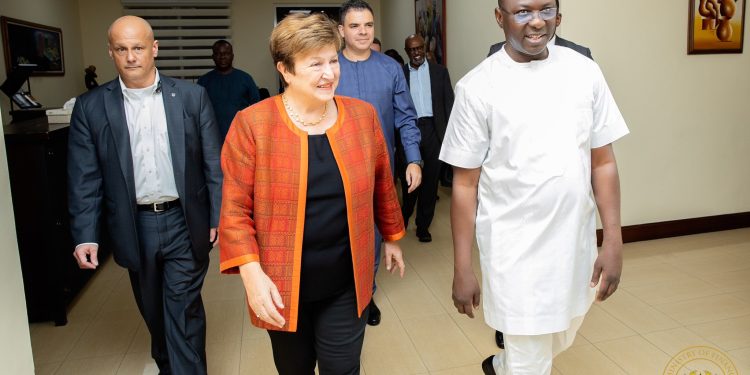Ghana, like many nations, faces the challenging prospect of managing its economy during an election year. Despite the inherent difficulties, the Finance Minister, Mohammed Amin Adam, has unequivocally stated the government’s commitment to adhering to the International Monetary Fund’s (IMF) Post-COVID-19 Programme for Economic Growth (PC-PEG) and the World Bank-supported Development Policy Operations.
Government’s Determination
During his inaugural monthly press briefing on the economy in Accra, Minister Adam underscored the government’s resolve to stay the course with these crucial programs. He acknowledged the global trend where election years often pose substantial challenges for economic governance but reiterated Ghana’s determination to persist.
Financial Restructuring
To ensure fiscal stability, the government plans to expedite the completion of the external debt restructuring program. Minister Adam emphasized the importance of optimizing domestic revenue mobilization while exercising stringent expenditure controls and rationalization measures.
Economic Growth Strategies
Recognizing the pivotal role of small and medium-sized enterprises (SMEs) in driving economic growth and job creation, the government aims to enhance SME productivity, efficiency, and financing. Minister Adam highlighted the significance of implementing the government’s growth strategy with a focus on SME development.
Energy Sector Recovery
Collaboration with the Ministry of Energy is paramount in effectively implementing the updated energy sector recovery program. Minister Adam stressed the importance of this collaboration to ensure sustainable energy provision and bolster economic growth.
Inclusive Economic Management
In pursuit of inclusive economic management, the Ministry plans to engage academia through a joint economic round table. This forum will facilitate discussions on pertinent economic issues and foster collaboration between policymakers and academics to propose viable solutions.
Ghana Development Forum
Additionally, the government intends to establish a Ghana Development Forum to convene various stakeholders and build consensus on key interventions such as the IMF program and debt restructuring initiatives. This platform will promote dialogue and cooperation to address Ghana’s economic challenges effectively.
Conclusion
In conclusion, Ghana’s commitment to adhering to IMF’s Post-COVID-19 Programme and other crucial economic strategies during an election year underscores its dedication to ensuring economic stability and growth. The proactive measures outlined by Minister Adam demonstrate the government’s determination to navigate challenges and foster sustainable development.
FAQs
- Is Ghana’s adherence to IMF programs common during election years?
- While challenging, it’s not uncommon for governments to prioritize economic stability during election periods, often continuing with established programs.
- How will optimizing domestic revenue benefit Ghana’s economy?
- Enhanced revenue streams can bolster public services, infrastructure development, and social welfare programs, contributing to overall economic growth.
- What role do SMEs play in Ghana’s economy?
- SMEs are significant contributors to GDP and employment, making their growth crucial for sustainable economic development.
- How does collaboration with academia benefit economic policy-making?
- Academic insights provide diverse perspectives and evidence-based solutions, enriching economic policy discussions and decision-making processes.
- What are the key challenges in Ghana’s energy sector recovery?
- Challenges may include infrastructure upgrades, tariff reforms, and ensuring sustainable energy provision amidst growing demand.







